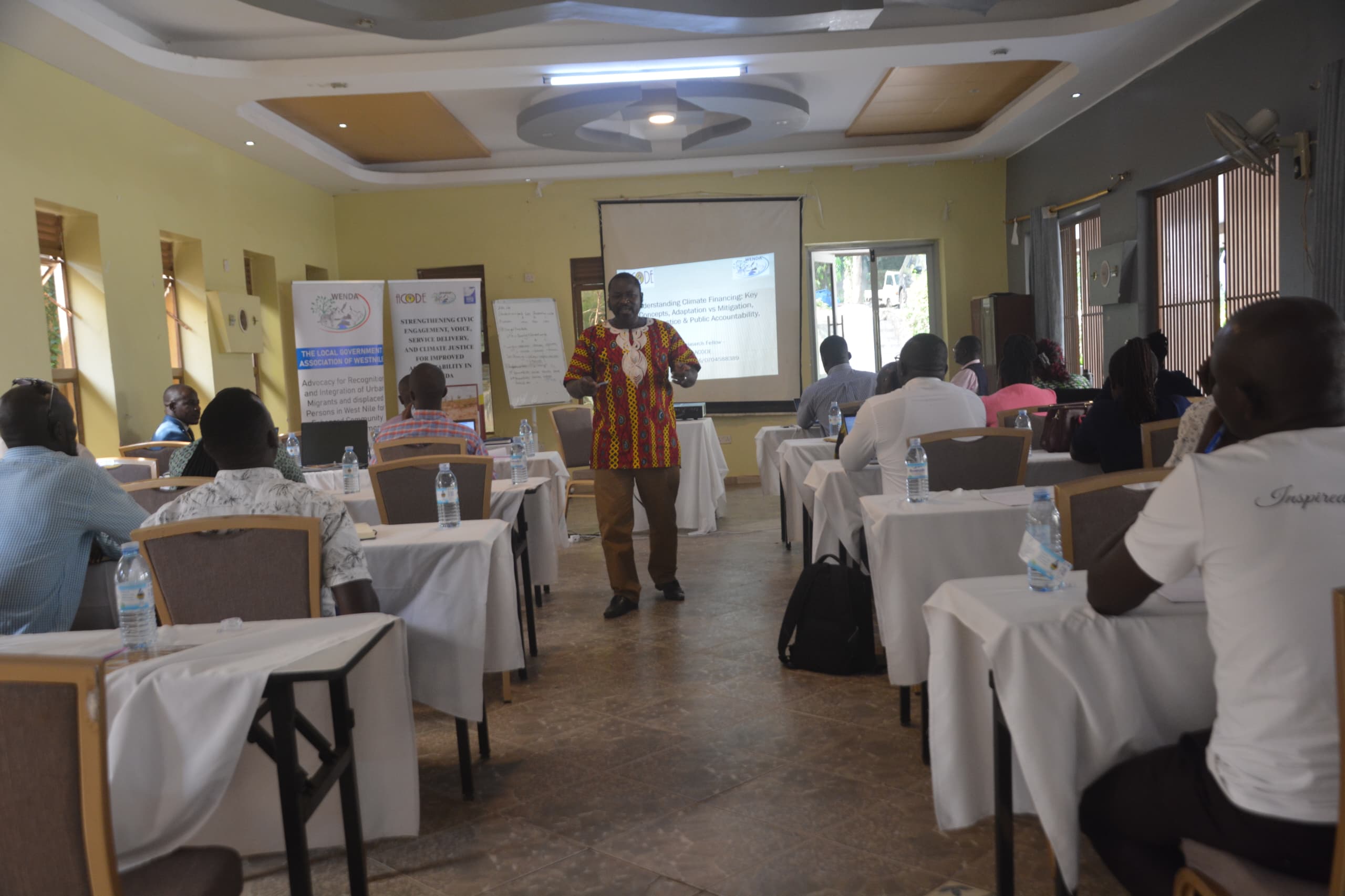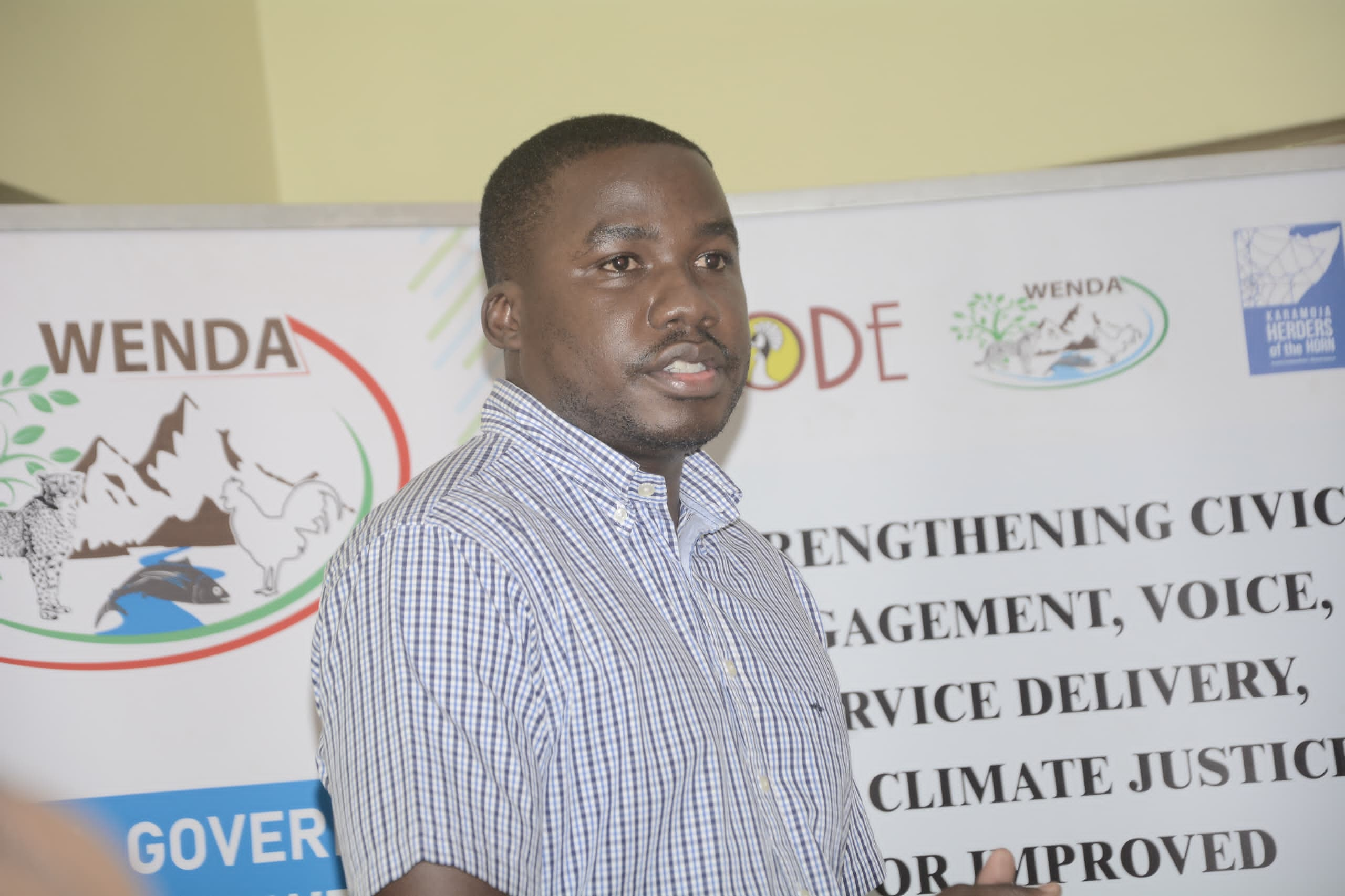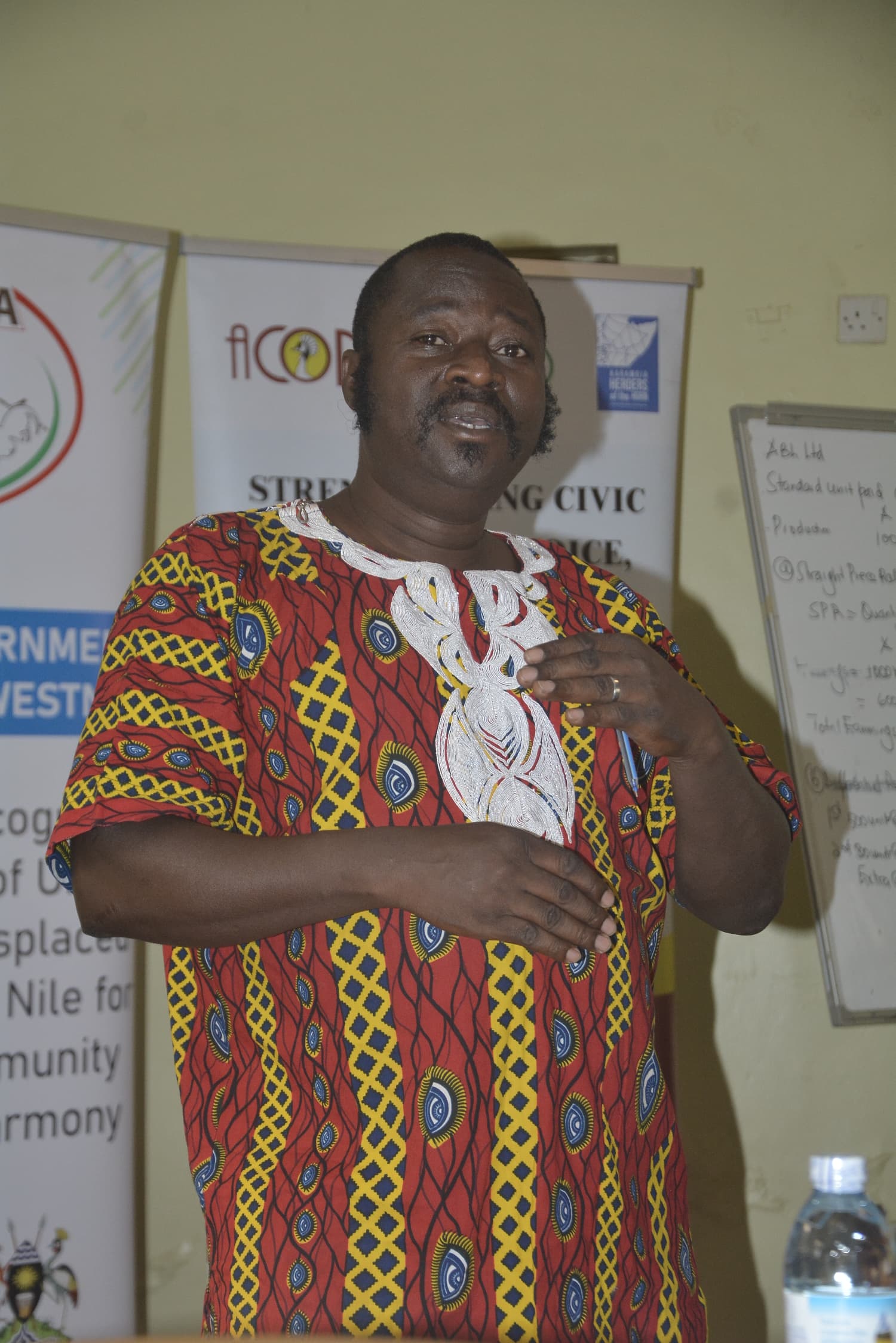CSOs in West Nile Trained on Climate Financing and Accountability
By Candia Peter, Daily West Nile
Arua, Uganda – Civil Society Organizations (CSOs) in the West Nile sub-region have undergone intensive training on climate financing and accountability tracking, equipping them with skills to integrate climate-related activities into Uganda’s planning and budgeting system.The three-day residential training, held at Desert Breeze Hotel from March 24 to 26, 2025, was organized by the West Nile Development Association (WENDA) in partnership with the Advocates Coalition for Development and Environment (ACODE).
The training, which attracted representatives from more than 30 CSOs, aimed at strengthening civic engagement in climate financing and improving accountability in environmental policies and programs.
The initiative is part of a four-year project, Strengthening Civic Engagement, Voice, Service Delivery, and Climate Justice for Improved Accountability in Uganda, supported by the Royal Danish Embassy in the West Nile and Karamoja sub-regions.

Empowering CSOs for Climate Action
During the training, officials from the Ministry of Finance and the Ministry of Planning and Economic Development facilitated discussions and practical sessions on climate financing mechanisms. Participants were introduced to the Programme Budgeting System (PBS) and guided on how to integrate climate-responsive plans into the budgeting cycle for Financial Year 2025/26.

One of the key objectives was to build the capacity of CSO leaders to identify climate-related activities, advocate for increased funding, and track budget allocations to ensure proper utilization of climate resources.ACODE representatives emphasized the importance of civil society engagement in budgeting processes, highlighting the need for transparency, accountability, and policy influence at both national and district levels.
"This training aims to empower CSOs with the knowledge and skills necessary to push for climate-responsive budgeting. Climate change is a reality, and ensuring that funds allocated for mitigation and adaptation are properly utilized is crucial for sustainable development," one of the facilitators noted.
Participation and Key Discussions
The training brought together several CSOs actively working on governance, climate justice, and community development, including:
- PLFU (Participatory Learning and Financial Uplift)
- FOSID (Forum for Sustainable Development)
- YDI-WN (Youth Development Initiative – West Nile)
- MEMPROW (Mentoring and Empowerment Programme for Young Women)
- Host Hub Innovation Center
- Community Action for Social Transformation
- CEFTRA-WN (Center for Transformational Leadership – West Nile)
- CECI (Centre for Climate Innovation)
- PICOT ( Partners in Development and Center for Holistic Transformation )
- People Empowering People
- Global Peace Chain
- ORYDES (Organization for Rural Youth Development and Empowerment)
- Amani Initiative
- Native Seeds Moyo
- AGONET (Agroforestry Network)
- AFARD (Agency for Accelerated Rural Development)
- Hope Foundation
- NWIDI (North West Initiative for Development and Inclusion)
- PMHC (People’s Mental Health Consortium)
- Vijana Corps
- PAIRED ( Pamoja Action for Integrated Regional Development
- Ndaapi Forum for Development
- ROVI (Rural Outreach Vision)
- LE AFRIKA (Leaders for Environmental Africa)
- YYECN (Youth and Young Entrepreneurs Climate Network)
- Life Concern
- COLEIN AID
These organizations, under the PACER (Promoting Accountability, Civic Engagement & Rights) Initiative, engaged in discussions on climate justice, policy implementation, and financial accountability.
Calls for Strengthened Climate Justice Policies
The training emphasized the importance of policy advocacy and active engagement in decision-making processes. Participants were encouraged to push for increased funding for climate change adaptation and mitigation programs at the district level and to track government spending on climate-related projects.

A key outcome of the training was the commitment of CSOs to collaborate with local governments and policymakers to ensure that climate funds are directed toward impactful projects that benefit vulnerable communities.One of the participants shared, "With the current climate challenges, we need to ensure that funds meant for environmental protection are utilized properly. We will use the knowledge gained here to advocate for transparency and hold leaders accountable."
The Way Forward
As Uganda continues to experience the effects of climate change, initiatives like these are crucial in ensuring that climate policies are well-funded, monitored, and effectively implemented at all levels.The CSOs agreed to form a regional climate advocacy network that will work with policymakers to track climate financing, promote accountability, and engage communities in climate action.This training marks a significant step towards strengthening governance and service delivery in climate justice, ensuring that climate financing benefits those most affected by environmental changes.